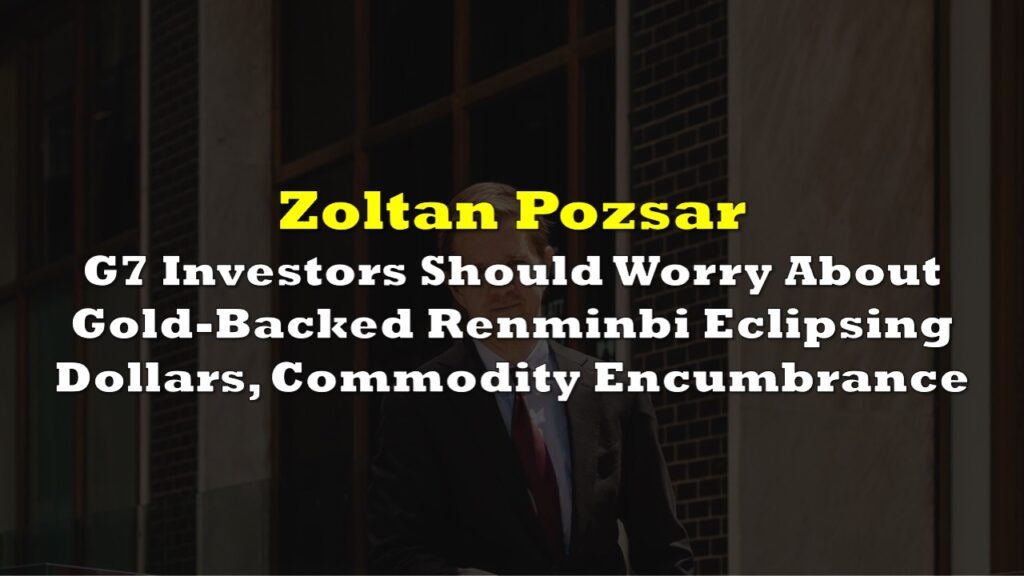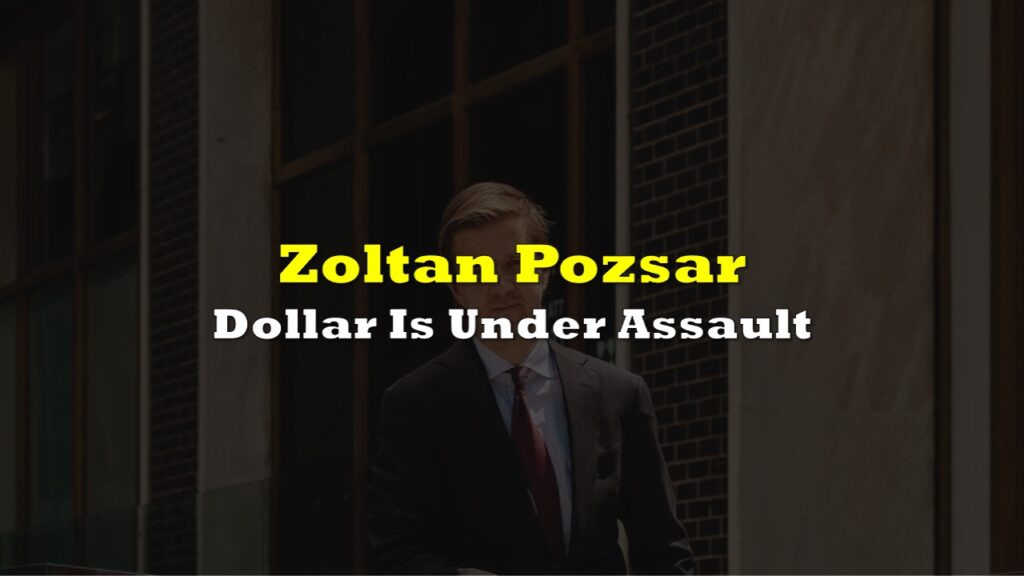Credit Suisse strategist Zoltan Pozsar and Boston University economics professor Perry Mehrling faced off to discuss the outlook of the dollar-dominated monetary order. While the former has been essentially describing in his dispatches the losing edge of the primary global currency, the latter believes the dollar is actually further establishing its dominance.
The pair guested on an Odd Lots podcast in which they debated their opposing views on the prospects of the dollar and global monetary policy.
Bretton Woods 3.0? Zoltan and I debate.https://t.co/63ZPMZpzjI
— Perry Mehrling (@PMehrling) September 11, 2022
As this column has regularly covered, Pozsar is releasing a series of essays explaining his theory of the rise of a new monetary order–dubbed Bretton Woods III. To recap, the author is laying out the view that the economic order is slowly shifting to a commodities-based one given the global shifts brought about by the pandemic and the Russia-Ukraine war. Deglobalization is on the rise and unified monetary policy–such as the dollar–will soon lose its relevance.
Ever since Pozsar started describing his theory after the onset of the war, he has been gaining ground in depicting his postulates that seem to challenge the status quo thinking.
But Mehrling–Pozsar’s former co-author in a 2013 paper on shadow banking–doesn’t share the view of a possible third Bretton Woods installment.
For Pozsar, with the geopolitical shifts occurring, access to commodities and actual physical markets would trump over the value of the dollar. Producing countries would eventually dictate the world order in what he would describe as a “our commodity, your problem” situation–notwithstanding the currency it would be purchased with.
“I think commodity prices can go much higher from here,” Pozsar said. “And a dollar can get devalued in terms of commodities in that sense.” And so, in his theory, the so-called dollar “project” might be seeing its peak in a rearview mirror.
Listening to Zoltan Pozsar on the latest OddLots pod pic.twitter.com/ikDwJpRkjZ
— ExitMultiple (@ExitMultiple) September 12, 2022
“If the physical world is becoming fragmented, I don’t think it’s any longer appropriate to think about the world as a unified whole where you need to replicate the unified clearing system in the US to the rest of the world,” he added.
Mehrling, however, sees these supply chain disruptions as merely that–disruptions, and thinks these don’t “have any implications for the future of the dollar.” In fact, the current economic shifts and stress might be proving more the dollar’s dominance.
“After the global financial crisis, if you look at what happened in capital markets, this is the extension of the global dollar system to the global south,” Mehrling said.
The dollar is back in demand, with spot price at its highest in history. Mehrling argued that the uncertainty in the physical market is lending credence to the stability of a singular, unified value of trade.
“This is a public good the US is providing the rest of the world,” he added.

So, for the Boston University professor, this time might not yet be “a pivot point where we shift from a market-determined system,” as Pozsar’s Bretton Woods III would suggest.
“The whole supply chain stuff was all disrupted by the pandemic. It’s being disrupted even more by geostrategic things, but it will get reconstructed,” Mehrling said.
But Pozsar maintains that “the world is going to look very different,” albeit these things would be followed “for the next six months, 12 months, five years.”
With Mehrling verbalizing publicly challenging opinions on Pozsar’s theory, many on Twitter echoed the sentiment.
This very excellent appearance of Zoltan and @PMehrling on Odd Lots is going to cause a lot of people with deeply entrenched cognitive biases to go silent on Twitter for a bit. https://t.co/zIInrE6Aw7
— Demetri Kofinas (@kofinas) September 12, 2022
The only reason Zoltan reached “a new level of fame” was that his barely intelligible predictions have tuned out to be the exact opposite of what was borne out in reality pic.twitter.com/zokQ3Uf9k8
— RufusT 🇺🇸 (@RufusTFireflyJr) September 11, 2022
Following his view of a world moving to deglobalization, Pozsar’s latest dispatch described how the West can protect its hegemony in a commodities-based world order.
Information for this briefing was found via Bloomberg. The author has no securities or affiliations related to this organization. Not a recommendation to buy or sell. Always do additional research and consult a professional before purchasing a security. The author holds no licenses.









